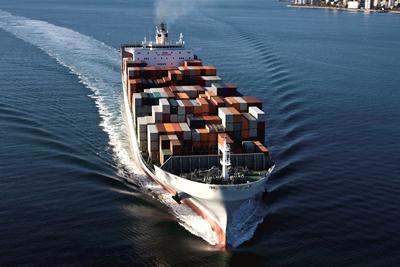Mediterranean migrant crisis: impact on the shipping industry

The master of a ship has a duty under international law to assist people in distress at sea, regardless of their nationality or status. This is posing an increasing burden on the shipping industry given the current migrant crisis in the Mediterranean.
In September 2015 the Institute of Maritime Law at the University of Southampton convened a workshop entitled Boat People: Some Legal and Practical Considerations relating to Migration by Sea at which a number of legal and practical issues relating to mixed migration by sea were considered.
One of the issues addressed at the workshop was the impact on commercial shipping of rescuing refugees and migrants at sea.
In 2015 it was estimated that over 1,000 commercial vessels had been involved in the rescue of over 50,000 people in the Mediterranean since the beginning of 2014. The delays and changes of course resulting from participation in these rescue operations may have financial repercussions, for example late delivery of cargo, deterioration of perishable cargo and the consumption of additional bunker fuel. Depending on the circumstances and the interpretation of the contracts involved, the losses incurred have to be borne by the shipowners, charterers or cargo owners, although some losses may be covered by insurance.
Kathleen Goddard, a Visiting Senior Research Fellow in the Institute of Maritime Law at the University of Southampton, presented a paper at the workshop entitled Rescuing boat people: the impact on merchant shipping in relation to contracts for the carriage of goods by sea in which she addressed some of the legal implications in relation to contracts for the carriage of goods by sea when masters comply with their duty to provide assistance. In particular, she discussed the doctrine of deviation. Compliance by the master with the duty to assist persons in distress at sea may require the master to change course and deviate from the contract voyage. Under English law, deviations to save life are justified deviations, and do not constitute a breach of contract. Moreover, the shipowner will normally be protected from claims for loss, damage or delay to the cargo by the terms of the contract of carriage.
However, if the master makes a further deviation to deliver the persons rescued to a place of safety which is not on the contractual route, it is unclear whether this is a justified deviation; if it is unjustified it will constitute a breach of contract, and the shipowner may become liable for losses incurred.
Ms Goddard subsequently published an article in The Journal of International Maritime Law entitled Rescuing refugees and migrants at sea: some commercial shipping implications. In the article she addressed the matters which she had discussed at the workshop, together with other problems affecting contracts for the carriage of goods by sea resulting from masters complying with their duty to assist persons in distress. She also considered aspects of the insurance position of shipowners and cargo owners who suffer losses as a result of masters complying with their duties.
Professor Mikis Tsimplis, Deputy Director of the University’s Southampton Marine & Maritime Institute and Director of the Institute of Maritime Law, says, “The systematic reliance on passing by ships in order to cope with the present crisis is an indication of the severe limitations of the international search and rescue system.”
Ms Goddard’s article ‘Rescuing refugees and migrants at sea: some commercial shipping implications’ is published in The Journal of International Maritime Law, Volume 21, Issue 5, September-October 2015. [(2015) 21 JIML 352-367.]